Fikile Skhosana: I help victims to become survivors
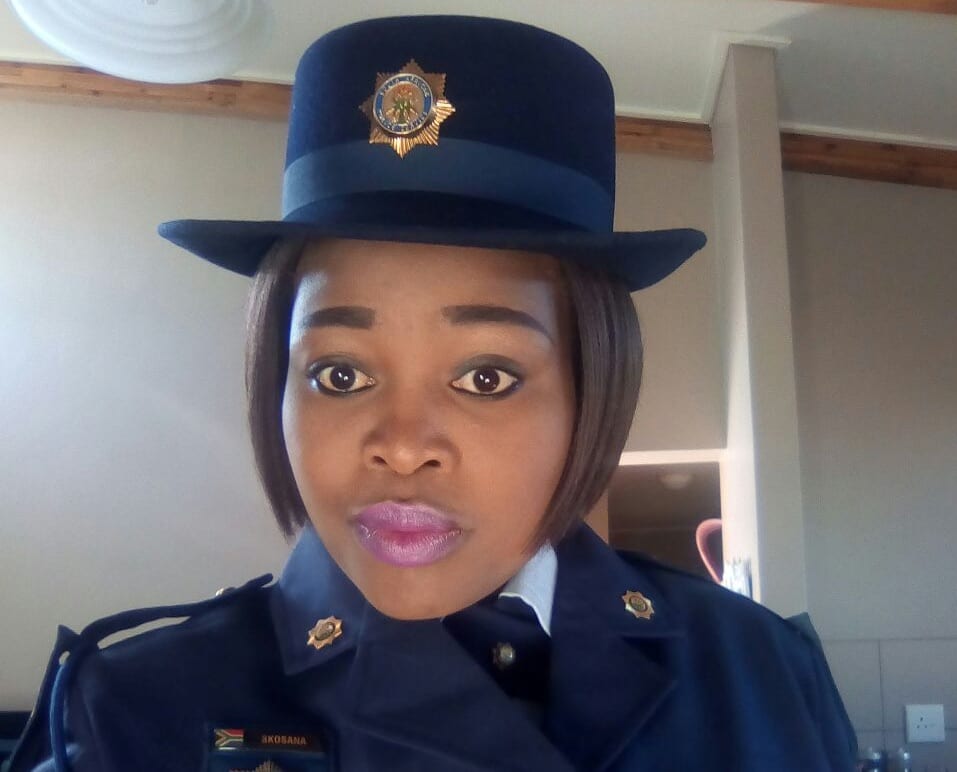
[bctt tweet=”I became a police officer because I like challenges, protecting others, and solving problems” username=”SheLeadsAfrica”] Fikile Skosana is a Detective Constable and Investigator employed by the South African Police Service, under Family Violence, Child Protection, and Sexual Offense Unit. She is constantly solving critical cases related to women and child abuse and assault. Fikile is giving women, whose rights are violated, the freedom to speak out and find justice and closure for their ordeals. This brave and compassionate 33-year-old always finds it rewarding when she solves a case and turns a victim into a survivor. When most young girls dreamed of being nurses or working in other ‘feminine’ jobs, you chose to be a police officer. How did you come to that decision and what did your parents say about it? I became a police officer because I like challenges, protecting others, and solving problems. My parents were not happy at first but now they believe in me. Police work is seen as a field typically better suited to men, what has been your experience with working in a male dominated field and have you ever felt incompetent because you are a woman? The job is not gender-specific, ultimately police officers have to be the same regardless of gender. As a woman, I don’t go out to fight but to calm the situation. I always feel competent, especially after solving a case. For women who feel guilty or responsible for their rape ordeal, sexual assault or abuse, what do you say to them or how do you act in such circumstances? How do you create that safe space for them that allows them to speak up freely and be heard? Some kids feel more comfortable talking to a mom-type person, same as rape victims, they feel free and safe talking to women. I listen to them, I tell them they are safe, I help victims to become survivors. What is your motivation every morning that keeps you going to work in a challenging and potentially risky field? Helping people and stopping other people from becoming victimized. The difference I make in someone’s life is what motivates me. [bctt tweet=”The difference I make in someone’s life is what motivates me – Detective Constable Fikile Skhosana ” username=”SheLeadsAfrica”] What is the most fulfilling aspect of what you do? The most fulfilling is when offenders get higher sentences. Solving cases and giving victims some type of closure is what I find most rewarding. How can young women wanting to enter police-work mentally prepare themselves for work in such a field? How does one know that they are a good fit for this type of career? I encourage women to consider law enforcement as a career if they are willing to put in time and hard work. They shouldn’t be discouraged and think that this is a male dominated world. They can do anything that a man can do. [bctt tweet=”I encourage women to consider law enforcement as a career if they are willing to put in time & hard work” via=”no”] Being a police officer, do you enjoy action movies or dramas on TV and if you do, which one is your favorite and why? I watch ID Extra channel 171 on DSTV. The shows on that channel are all about crime solving. I actually learn different tracing techniques there. If you’d like to share your story with She Leads Africa, let us know more about you and your story here.
Munozovepi Gwata: Nobody is really taught how to manage their personal finances
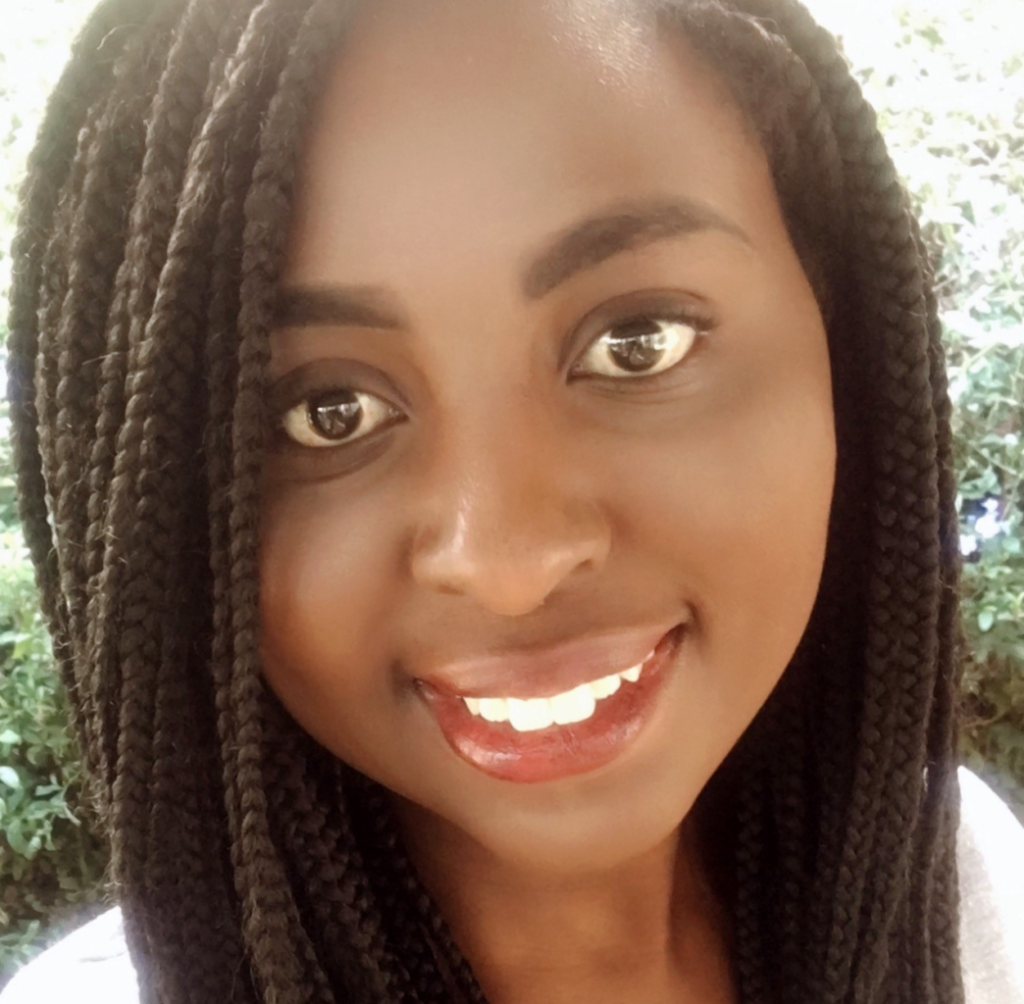
[bctt tweet=”We want to instill financial literacy skills into children from a very young age so that they can understand money” via=”no”] Munozovepi Gwata is an ambitious entrepreneur and an aspiring Chartered Financial Analysts and Hedge Fund manager. She is the founder of the Aworks, a conglomerate with subsidiaries Arete’ Tech, Kukura Capital NGO and Kukura Capital Investment Trust. Her personal mission statement is to inspire people throughout the African continent and to create innovative solutions that will bring upon development, wealth, and success for the continent. Munozovepi’s goal is to build Awork to the same status and standard of Berkshire Hathaway which she has no doubt that she will accomplish. Why is financial literacy important and why start an organisation that educates people on the matter? I believe financial literacy is extremely important just like learning Maths and English. It is the fundamental skill that equips people with the essential ability to effectively save and make money. Unfortunately, nobody is really taught how to manage their personal finances. Not at one stage in our lives do we come across financial literacy education in the mainstream education system. I find this very alarming and I am a strong advocate that financial literacy should be included in the mainstream curriculum. The consequence that we have now, is that people are not equipped to manage their personal finances and they do not know how to save or grow their money. Therefore, instead of having the opportunity to pass down wealth to the next generation, they are passing down poverty and debt. I felt that I could no longer sit on the sideline and watch this continue to happen, this is when I decided to become a part of the solution and build an organization that addresses the problem. In starting Kukura Capital, did you decide to go solo or have a business partner(s) and why did you decide to go solo/partner up? In starting Kukura Capital, I decided to go solo. I do have a great team of friends and family that help me and soon we will be adding another 8 new team members to the Kukura Capital team. When I started Kukura Capital it was only an idea. A lot of people, even though they shared and agreed with my vision, didn’t share my hard work ethic, and because of this, I did not manage to find a full-time business partner. It still worked out great in the end. I was given a lot of good advice on how to develop the organization, leaned on some great books and to my surprise in such a short time we have managed to pick up and maintain a great momentum. We also have the support from other well established NGO’s and Institutions which is great. When did you establish Kukura Capital and what has been the biggest lesson you have learnt thus far? Kukura Capital was established last year in November and it was inspired by my own journey to learn more about the financial industry. In gathering information, I kept thinking to myself there has to be an easier way to learn about financial literacy, and from there Kukura Capital was born. The biggest lesson I have learnt? I have to say I have learnt so many things, but the biggest lesson is that knowledge is truly power. As an organisation, one of our main goals is to make knowledge about financial literacy easily accessible and to break down the complex concepts of finance and make it simple and easy to understand and apply. Doing such a simple task has proven to be powerful. When you tell an individual of any age, be it a high school student or a young adult, that if you save this amount of money every month and reinvest it either in the market, or in a business and you can get this x% in return, people’s eyes really light up, and they really do change their spending habits. The things people always say to me is: “Why didn’t anybody tell me earlier? I would have been a millionaire a long time ago.” What gave you the courage to start your organization? What advice would you give to someone who is thinking of going into business? Fortunately enough, my past experience in leadership positions and community involvement gave me a lot of confidence to start. Also, having a business and finance background also gave me the confidence to start Kukura Capital. However, to be honest, I didn’t really think too much about it, I really believed what the organization stood for and went for it. That would be my advice to anyone starting a business. In addition to running Kukura Capital I also run a FinTech business and when I started I had plenty of doubts but I quickly moved away from any negative thoughts and just went for it. In addition to that, I will advise anyone who wants to start a business to fully commit to their business and make sure that they love what they do, so even when it gets tough they are still driven to keep going and succeed. [bctt tweet=”I’ll advise anyone who wants to start a business to make sure that they love what they do” via=”no”] You have recently finished a children’s book “The Rich Life of Thabo”, what brought about the decision to write a children’s book on financial literacy and in what format and where will the book be available? I really love this book and wrote it with my talented friend Charisa Mujuru. I am really excited for this book because it is definitely going to inspire a lot of young kids to be like Thabo. Thabo is the main character in the book and he lives in a township and one day he decides that he is tired of never having enough pocket money so him and his sister, under the guidance of their grandmother, decide to start a business. The book really
Lebogang Mashigo: Our role is to present platforms for discovering, expressing, empowerment and connecting
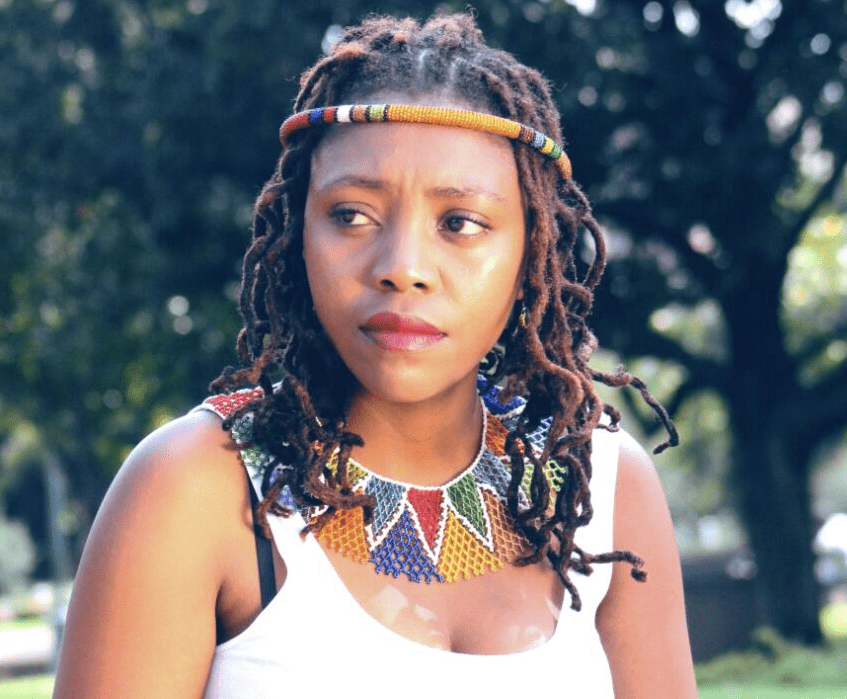
[bctt tweet=”At first it was about numbers but now our focus is about quality and impact” username=”SheLeadsAfrica”] Lebogang Mashigo is a 27-year-old social entrepreneur from the former KwaNdebele region, currently Thembisile Hani, of South Africa. She is the founder and director of Nubreed Company and Music Institute. She is a YALI (Young African Leaders Initiative Alumni in Business and Entrepreneurship, a Monash South Africa Lead (MSA Lead) fellow and was named the Mail & Guardian’s top 200 Young South Africans 2016. Lebogang is very passionate, brave and believes in her strength and that of others. She has been nominated twice for the Women Real Architects of Society Awards. Lebogang has also been profiled on Mzansi Insider, On the Spotlight with Ashraf Garda as well as on Kicking Doors with DJ Sbu on CNBC Africa. She Leads Africa contributor, Kutlwano Mokgojwa catches up with her on all things Art, Music and youth empowerment. What role does Nubreed have in the community and how does it fulfil that role? Our role is to present platforms for discovering, expressing, empowerment and connecting. We started a just a music project that gave music lessons. Today we have become more than just a music project. We educate, discover, empower and partner with young people and communities for change. What effect does empowering the youth with music have? How has that inspired you to venture into the Visual Arts and Life skills? Coming from a rural area where little is happening to stimulate young people growing up in the region of former KwaNdebele, I didn’t want to change the world, but I understood that young people are gifted and they can express themselves through music, it made sense to start NuBreed the music institute. We are not changing people but we have inspired young people to be confident, to go after their dreams, to discover opportunities within the music/arts industry. Through workshops and many events, we host, young people, connect from those in the industry and learn from them. Working with young people helped us to discover other talents and needs which propelled us to create other platforms for visual arts, life skill workshops and business workshops. It is all part of our mission to educate, empower and develop. We now host the biggest annual talent show in June called KwaNdebele Got Talent where we call for auditions and in June young come from all over the region to showcase their talents and compete for a big cash prize and other development opportunities. [bctt tweet=”Our role is to present platforms for discovering, expressing, empowerment & connecting @NubreedMI” via=”no”] How has Nubreed been welcomed into the community, what relationships have you formed and how do these relationships help the organisation? NuBreed is a recognised brand that is associated with youth, Change and Empowerment. We have been welcomed with open arms in the community. We work with other community structures, we’ve worked with schools, churches and other NGOs. However, we still see room for more networks. How old is your target market and what socio-economic challenges do they face? As the music institute, we’ve worked with many young. At first, it was about numbers but now our focus is about quality and impact. So I will say we are growing our impact. [bctt tweet=”We’re not changing people but have inspired young people to go after their dreams” username=”SheLeadsAfrica”] What kind of syllabus does your organisation follow and how has that helped with your partnership with the University of South Africa? NuBreed uses the UNISA music syllabus to teach our students, we have UNISA accredited teachers and we do UNISA Music exams twice a year. This enables our students to receive UNISA music certificates and earn university credits. Your organisation is a non-profit entity, how does that affect your operations in terms of funding and how do you manage the financial pressure? Funding has been a big challenge. We are not formally funded. We have received donations from individuals now and then. But this has encouraged us to develop our own fundraising programme in-house. We enter competitions for funds and we are always looking for partnerships. Now we are looking for opportunities to expand. All this is inspired by our need to sustain NuBreed. What personal lessons have you learnt through your leadership of Nubreed? Personal lessons: It is important to say no to some ideas. [bctt tweet=”It is important to say no to some ideas @leewaMashigo” username=”SheLeadsAfrica”] If you can spend a day in the life of anyone, living or dead, who would it be? I would really like to be Oprah for a day. I would build art schools in rural areas. If you’d like to share your story with She Leads Africa, let us know more about you and your story here.
Caron Williams: The hip-hop maven behind The Plug Magazine
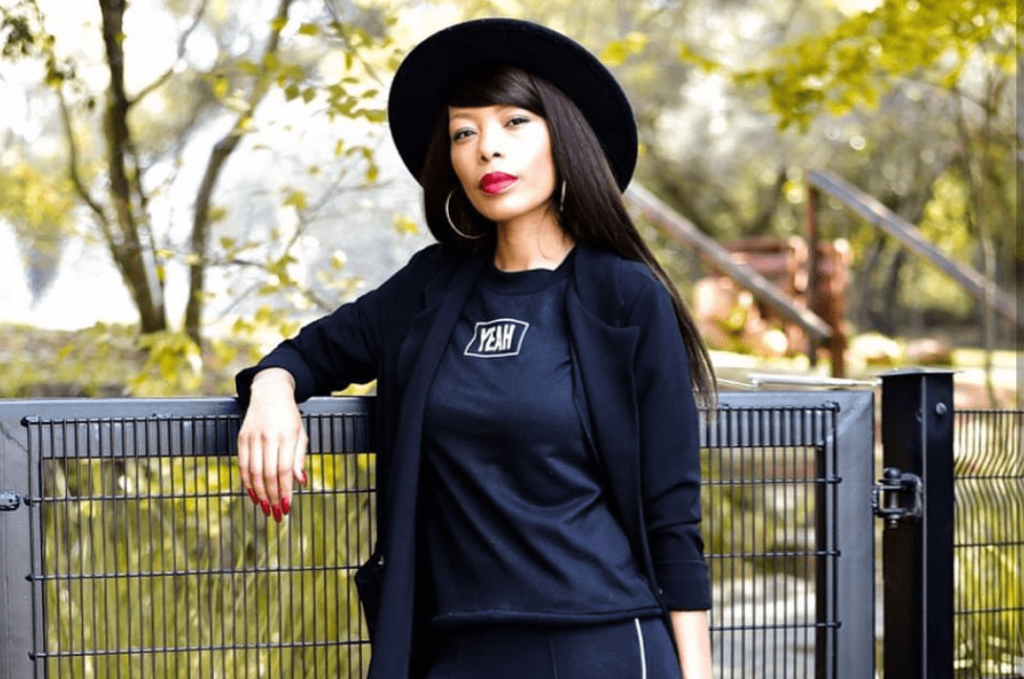
[bctt tweet=”It’s a balancing act offering our audience what they want to read & what we feel is an important story” via=”no”] By now, everyone in the industry knows the lovely Caron Williams. Hailing from Cape Town, this beauty has been in the creative industry for years and has now added “Editor” to her resume. The Plug, the new and freshest hip-hop online magazine has really changed the game in such a short amount of time. The Plug gives you the need to know and the latest on all things hip-hop, fashion and urban culture –locally and abroad. This magazine has been an incredible platform, giving us in-depth insight into our favourite local and international artists in a fresh and innovative way. As a young Black woman, Caron is breaking the barriers of a male-dominated industry, paving the way for young creatives. Having turned her knack for hip-hop into an incredible publication, Caron has clearly become a powerhouse in the making, in her own right. In this short interview, Caron gives a sneak peek into how she grew the magazine, being a woman in the industry and what the future holds. What inspired you to start The Plug? I’ve always been incredibly passionate about hip hop, urban culture and fashion and becoming an Editor has always been my dream. The Plug Mag was the brainchild of 6th Avenue Group, they approached me regarding becoming the Editor of their online publication before it was founded and I agreed. Have you found that being a woman in the industry has proven to be difficult? If so, what kind of setbacks do you have? Being a black woman in any male-dominated industry definitely comes with immense challenges, but the truth is, the game is hard for everyone. You have to be tough to be in this industry and willing to put up a fight every day. Regardless of your gender, if you don’t know who you are, aren’t clear about your vision and aren’t willing to put in the work, the game will chew you up and spit you out. I’m not fazed by being a woman in this industry because I can hold my own against the best in the game and this is only the start. I want to be the best and I’m going to be the best, no stereotype about by gender will deter that. [bctt tweet=”The reception is inspiring & shows the SA hip hop community is hungry for powerful content” username=”SheLeadsAfrica”] I know that you also have a knack for fashion, can we see a publication of the sort from you again soon? Anna Wintour and the late Franca Sozzani are my idols. Fashion has always been my first love and a passion I’d love to return to. Establishing my own fashion publication is something I definitely aspire to do one day and the success of The Plug Mag is essential for me to reach that point. South Africa has such incredible designers and fashion talent, which deserves to be celebrated. Speaking of fashion, what are your must-have items this season? Definitely my camo bomber, Army green overall, deep maroon lip colour and a great pair of boots. The publication has grown tremendously this past year – how has that been for you and your team? It’s been a thrilling experience. It started off as a passion project from a group of creatives who truly love hip-hop, fashion and the culture as a whole, so to see how much it has grown and resonated with people is truly incredible. We have so much we still plan to do with The Plug because we truly want to transform the local urban cultural landscape, so the response has been encouraging. On a personal level, it has been a challenging but fulfilling experience. How is the future looking for The Plug? Any chance you will switch to a print publication? We have so many exciting plans for The Plug Mag. We’re immensely ambitious with our plans. Watch this space… [bctt tweet=”Editor, @CaronWilliams_ chats with us about how The Plug is transforming the local urban cultural landscape” via=”no”] As a woman in a male-dominated industry (hip-hop), you have basically become the answer for consumers who want to know more about what’s happening in the industry, how does that feel for you? It’s an interesting position. It’s always a balancing act offering our audience what they want to read and what we feel is an important story that needs to be shared with the culture. The reception to the content we’ve put out has been very inspiring and demonstrated that the SA hip hop community is hungry for powerful and engrossing content. What advice do you have for people who want to start their own thing? Passion is the foundation of any great venture; it’s what drives you when things get challenging. You truly need to have a clear vision of what you’re trying to achieve and how you plan on doing so. You have to understand that great projects and brands take the time to build and that you have to be in it for the long haul. Over and above everything, you really just have to work hard and put in the hours. Outwork everyone, study the game, study your peers and become versed in the industry you’re trying to penetrate. You also have to surround yourself with people who are as passionate and driven as you are, and people who have been in the game longer than you have been so you can learn from them. Be realistic about what you want to achieve; people are often very idealistic about startups. Even if it’s what you’re passionate about, it’s still going to be hard work. Build a network, sell people on your vision and don’t be afraid to make mistakes. [bctt tweet=”Build a network, sell people on your vision and don’t be afraid to make mistakes” username=”SheLeadsAfrica”] Which songs do you currently have on repeat? I’ve had Mick
Mbali Zondo: Surround yourself with people who you admire
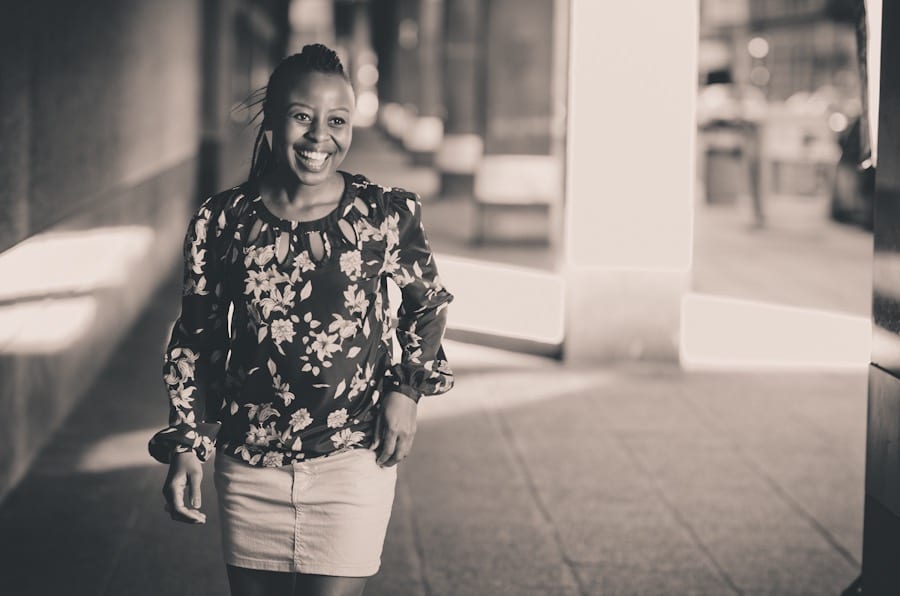
[bctt tweet=”Do your homework before networking. Make sure you have introduced yourself to the host if you can” via=”no”] PR doyenne turned award-winning director Ava Duvernay famously said: “when you’re in your lane there’s no traffic”. Mbali Zondo’s remarkable career journey is a testament to this truth. She continues to cement her place in the world of public relations having worked on global brands such as Apple and Clinique. She does it all with the kind of poise, humility and grace attendant with royalty. Her enthusiasm for people and technology and how they all come together to direct meaningful conversations about brands through public relations is truly inspiring. She has walked the graduation stage 3 times for disciplines such as marketing and communications from prestigious institutions such as the University of Pretoria. Not even 30 yet, she continues to startle her peers with her forward thinking approach to creating lasting brand legacies in the digital space. She has the determination, grit, and power to continue to be a game changer in the PR world. Success is not a ‘one-size-fits-all’ and Mbali defines this her own way, through her individual journey. In her work, she continues to remind us all that reputation matters, and that building big brands require long-term, strategic thinking, and a little PR magic. Why did you choose P.R as a career path? Growing up, I did not know what PR was, let alone that it could be done as a career choice. All I know was that I wanted to express my creativity and be amongst interesting people at events. I’m a visual person and I wanted to be featured in magazines or to work with people who worked for magazines. What are two of the most important lessons you’ve learnt about yourself through your career journey? Trust your skills but don’t be afraid to improve on them in order to be recognised as an expert in your field. Surround yourself with people who you admire because this forces you to raise the bar when it comes to excellence. Tell us about a professional situation when the odds were against you, and how you overcame this? Part of PR is organising media events. I remember organising an annual lifestyle event and the whole event was scheduled to be outside. This event was scheduled for the end of September and I didn’t take into account that the summer rains in Joburg start at that exact time of the month. As fate would have it, there was rain predicted for the whole day for the day of the event. I overcame this situation because, with my background with having had used many suppliers before, I was able to call a supplier who gave me a personal referral to a supplier who puts up stretch tents. Due to having that personal relationship, I was able to negotiate to have the stretch tent set up and ready a day before the rain hit Johannesburg. Needless to say, my team was very impressed that I could think on my feet and get a quick turnaround time with a new supplier. [bctt tweet=”Success is not a ‘one-size- fits-all’. Success is subjective” username=”SheLeadsAfrica”] If your life were a movie title what would this be? Mad Max (with Tom Hardy and Charlize Theron). This movie highlights determination, grit, and power in an unexpected and challenging situation. Although battered and bruised in the end, Charlize’s character comes out victorious and succeeded in her mission. What does sisterhood mean to you? To me, sisterhood means uplifting other women and sisters without feeling envious of the other woman’s gift or talent. It’s about supporting each other beyond our backgrounds and standing up for one another. What do you know now, that you wish you knew 5 years ago? I wish I had known 5 years ago that everyone has a unique path for a reason and that achieving success is not a ‘one-size-fits-all’ shoe size. Success is subjective. I also wish I had known that financial literacy is important and that saving up to buy a house is a long process. For those who find networking daunting, what are 3 tips you can share? When it comes to networking if you can take a friend, do so because networking becomes easier when you do it with someone you know and feel comfortable with. When you are comfortable, networking becomes easier. Share your professional contact details with new connections and stay in touch with them when you can. They will appreciate your efforts of investing in the relationship. Do your homework before networking. Try and find out who will be on the guest list so you can initiate conversations with people who may have mutual interests with you. Also, familiarise yourself with the purpose of the event and make sure you have introduced yourself to the host if you can as [bctt tweet=”Trust your skills but don’t be afraid to improve on them” username=”SheLeadsAfrica”] What skills should every P.R professional have in their “bag of tricks”? Writing: Every PR Professional needs to be able to write as you will often find yourself in situations where you need to write content, messaging documents etc. Be prepared. Presentation skills: You need to be able to present ideas or host an event with media, therefore, learning how to present is crucial to PR. Adaptability: PR is an industry that changes often and as much as you can be organised, sometimes, not everything goes according to plan. A good PR professional needs to be able to adapt accordingly to any situation to remain relevant and resilient. What is your morning get up and go song? It has to be Nina Simone: Four Women. This song gives me the confidence to start the week. What are your plans for the next 5 years professionally? Over the next 5 years, I’d like to do the following: Be featured in the 40 under 40 Forbes list. Complete a Master’s degree in Creative Brand Leadership. Travel
Aileen Hlongoane: I didn’t envision that our organisation would have such a great impact on the country
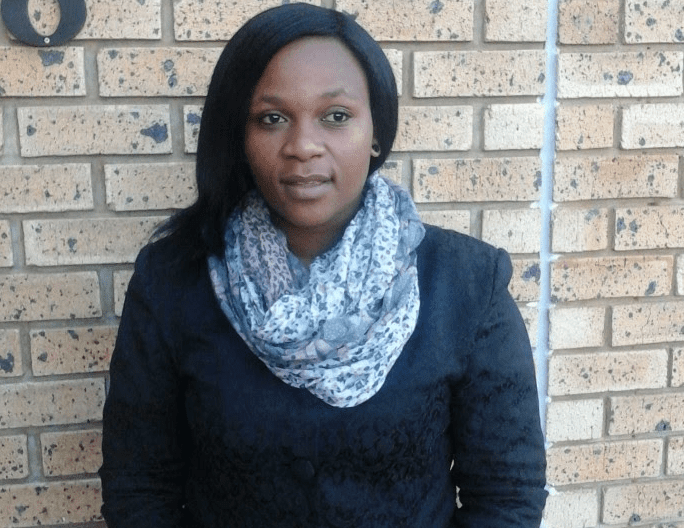
[bctt tweet=”The lack of sanitary pads is a human rights issue. It infringes on the right to dignity, education, health & privacy” via=”no”] Founder and president of Pledge a Pad SA, 28-year-old Aileen Hlongoane was born in Kwa-Ndebele in the Mpumalanga province of South Africa. Upon completing her high school with a distinction, Aileen enrolled for an LLB degree at the University of Pretoria. It was whilst volunteering at the institution’s Centre of Sexualities, Aids, and Gender that she discovered that young girls from underprivileged communities are forced to miss 3–4 days of school every month because they do not have access to sanitary pads. Aileen then established Pledge a Pad SA, a non-profit organisation that aims to educate young girls from lower income households about menstrual and reproductive health as well as provide them with sanitary towels in a bid to lower the high school- absenteeism rate of these young girls. SLA contributor Kutlwano Mokgojwa catches up with the 2015 Mail & Guardian top 200 young South Africans about challenging social myths and taboos surrounding menstruation, appealing to the Constitutional court to have provincial governments provide free sanitary pads to schoolgirls and increasing the access to sanitary pads across the country. [bctt tweet=”I figured that when faced with a decision between bread and sanitary pads, they’d always choose the former” via=”no”] Prior to Pledge a Pad SA, there were virtually no organisations founded for the sole purpose of affording schoolgirls from lower LSM communities to attend school during their periods. What triggered you to change that in South Africa? My tenure as a volunteer at the Centre for the Study of AIDS was my springboard. Whilst I was pursuing my LLB degree, I volunteered at the Centre for the Study of AIDS, at the University of Pretoria. We visited many orphanages and like places of safety, which houses many girls, yet have very little resources. I figured that when faced with a decision between bread and sanitary pads, they would always choose the former. Therefore, that “time of the month” would be a nightmare to the affected girls. The subject of menstruation is still very much a taboo what impediments, if any, did that cause for your organisation? Requesting donations from males and older women was difficult and sometimes impossible. Men think this is something that only women should talk about. The elder women feel disrespected when a young woman or a man speaks to them about anything that has to do with the menstrual cycle. [bctt tweet=”Requesting donations from males and older women was difficult and sometimes impossible” username=”SheLeadsAfrica”] Since the establishment of your organisation, other Non-Profit Organisations dealing with the same issue have been established. As of this year, the KwaZulu-Natal provincial government has started an initiative to supply schoolgirls from lower LSM schools with sanitary pads. Did you envision that your organisation would have such an impact? Why do you think the issue wasn’t tackled earlier? I really did not envision that our organisation would have such a great impact on the country. Not enough awareness was created on this issue and many people needed to be educated on the plight of young women and girls who cannot afford sanitary pads. The lack of sanitary pads is a human rights issue and it infringes on the right to dignity, education, health and privacy. Therefore there exist constitutional grounds to bring an application at the Constitutional Court to compel other Provincial Governments to provide free sanitary pads. There have been several petitions to have the South African government levy the tax on sanitary pads and tampons. What is your view on that? As Pledge a Pad, our main concern is the access to sanitary pad, therefore we support initiatives that will increase access to sanitary pads. You started the organisation whilst still studying, what effect did it have on what you initially wanted to do after school? How has running such an organisation affected your worldview and what has been the most gratifying experience you have had since the establishment of Pledge a Pad? I lost the interest in studying towards my LLB degree and I wanted to run Pledge a Pad full time and turn it into my career. I realised that the reasons we judge and discriminate against each other as people stems from ignorance and lack of education. Women suffer much prejudice just by virtue of being women; unless the status quo is dealt with, women will always lag behind compared to their male counterparts. What would you say is a skill that is essential in running a Non-Profit Organisation? A combination of business skills and care for people. [bctt tweet=”You need a combination of business schools and care for people to run a non-profit @Aileenhlongoane” via=”no”] What is the way forward for Pledge a Pad? Expand our operations and engage more state holders. Continue to advocate for women’s rights. What tasty food do you think would be disgusting over rice? Cake If you’d like to share your story with She Leads Africa, let us know more about you and your story here.
Mahlodi Legodi: I manage the business, God owns it
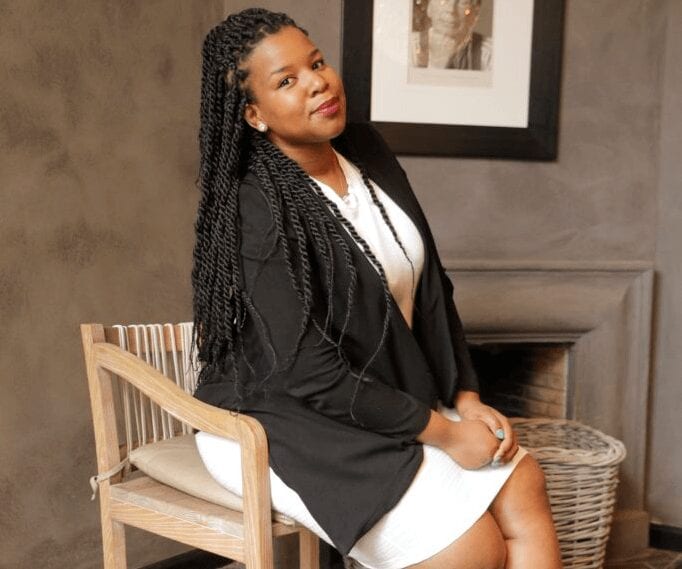
Public relations is basically free advertising. The thing is, it is important to be able to relate with the people on which your business relies. It is those relationships that will make people support your vision by choosing your product or services over your competitors. As a client I’d want some transparency, I mean who supports a vision they don’t understand? Mahlodi Legodi will help you with that. With 5 years experience in Public Relations, Mahlodi has managed and improved the media relations and reputation for prominent African and international brands. Notable among these are Carlson Rezidor (Radisson Blu Hotel group), LG Electronics, Bosch power tools, Ask Afrika and Subinite. With this extensive clientele base spanning corporate, consumer and retail sectors, Mahlodi has overseen and executed successful internal and external campaigns, exhibitions, product and service launches, media roundtables, internal and external communication strategies. SLA content fellow Rumbie had the opportunity to interview Mahlodi Legodi and this is what the PR guru had to share… Mahlodi Legodi, some of the readers would want to know what the few months before starting up your company were like. Starting a company isn’t an easy process! The first few months before I decided to embark on this entrepreneurship journey I spent in prayer, research, planning and preparation for the birth of FR Communications Pty Ltd. It is very important to gather as much information about your business venture. Speak with a few industry players about what worked for them and what didn’t in order to position yourself well in the industry. From the outset what was your mission? Our mission is to create and deliver award-winning services to our clients by providing modern strategic and creative ideas that are tailored to clients’ business objectives. We aim to be crucial creative partners to the brands that require effective and professionally executed PR and Communications solutions. Did you ever consider letting go and probably getting yourself a 9 -5? No, I have never considered getting another 9 to 5. The beauty of venturing into business for me came with the assurance that I had nothing to worry or stress about for greater is He that is in me (1 John 4:4) than he (challenges or struggles) that is in the world. I manage the business but God owns it! What gets you out of bed every morning? What gets me up in the morning is the reminder that my clients trusted me enough with their brands (dreams, aspirations and livelihood) accompanied with the love and passion for what I do. [bctt tweet=”When you lead your industry through communication, ensure it’s not just pretty but right” username=”SheLeadsAfrica”] ‘FR Communications believes in the importance of not just having a great idea but to have the “right idea”.’ How do you know your idea is the right idea? We are committed to setting brands apart in a crowded marketplace by offering unique, innovative and media savvy PR services that don’t only focus on creating great ideas but delivering the right ideas. Ideas which produce proven results that have a direct and positive impact on our clients brands. The right idea is more than just something you’re excited about —it is an idea that is actually viable to ensure the overall success of the clients business and communication needs. The right idea will always solve a business problem and set your brand apart in the industry in a memorable way. It is extremely hard to consistently create content that’s truly unique and new. So when you do have the chance to lead your industry through your communication, you have to take it and ensure it’s not just great (pretty looking, sounds amazing) but it’s right (viable, educational, factual, and speaks to your target audience) It is extremely hard to consistently create content that’s truly unique and new. So when you do have the chance to lead your industry through your communication, you have to take it and ensure it’s not just great (pretty looking, sounds amazing) but it’s right (viable, educational, factual, and speaks to your target audience) What is the most gratifying part of your position as owner and senior consultant? In this role, I learned that if God puts authority and credibility in your life, the title (owner and senior consultant) is irrelevant. I do everything from filling, writing, recons, mentoring, and media monitoring. What does it take to be a co-owner of a company? Who do you need to be connected to and what does one need to bring to the table as a cofounder/ coowner? Being a co-founder of a company means that you are part of a team that came together to compliment each other and validate the plans concerning the company before implementing them. When you decide to get into partnership with someone in business (being a co-owner/co-founder), it is very important to have a mutual understanding and vision of the products and services that you want to provide to the market and how you will ensure the company continues to grow. A partnership agreement should contain the following: It needs to define who contributes what: You need to discuss with your business partner what you both will be bringing to the table in terms of labour, cash, clients, property etc. Who plans on working on the business full-time, part-time or just act as a silent partner? It is very important to define who gets paid what: This consists of an outline of how profits will be distributed. Will each partner be paid a salary for his or her role in the business? If so, how much? And what about any extra profits for the year? You need to be able to define how decisions get made: What type of decisions require unanimous votes, and what type of daily decisions can be made by a single partner? Discussing these matters upfront and deciding what decision-making structure will let your business run the most effectively is important in a joint venture. If a co-founder doesn’t come to their part
Nthabiseng Mapela: Knowing that I made it happen makes all the hard work worth it
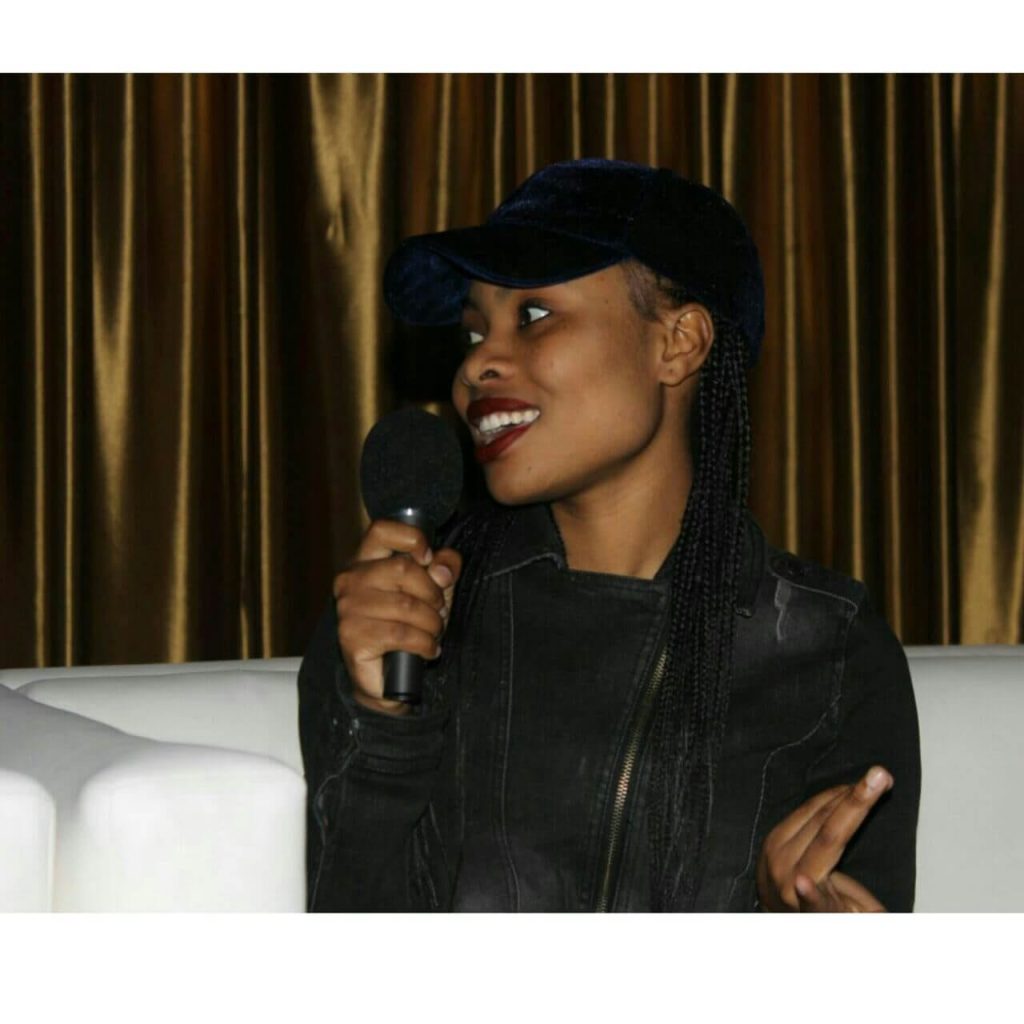
[bctt tweet=”Entrepreneurship was never something I dreamed of doing – Nthabiseng Mapela” username=”SheLeadsAfrica”] Entrepreneurship is about offering solution to problems. Nthabiseng Maphela, founder of Beyond Measure, an event company for growth is one of the few to say that money was always a motive to her. Even though it is not the primary motive. Nthabiseng certainly did not have sleepless night thinking about money but because she wanted to offer a better service for all. It is a passion for what she is doing for others that drives her. What does self employment mean to you? Self employment to me means building a legacy for the world, a legacy that will reflect who entrepreneurs are and change life of others. Self employment is a mean of giving back. What do you like most about your job? How do you stay motivated when things don’t go as planned? Despite all the stress and horrors, all the cancellations and technical difficulties, event planners wouldn’t have it any other way. What could be more rewarding than the end results? Seeing people enjoying themselves, seeing everyone connect and share an experience. Knowing that I made it happen makes all the hard work worth it and that’s why I love working in events. What are the most common/serious problems you have encountered as an event manager? We face three major problems; unexpected weather, technicaly failure and most importantly, guests not showing up The trick is to always have a backup plan. What is close to your heart? Entrepreneurship. It was never something I dreamed of doing but it’s important to the country. Entrepreneurship contribute to the economy and this made me want to be part of the team that changes the world. It is something that makes me feel very important and make me feel like i am contributing towards the economic growth. What do you enjoy more about you job ? The planning itself and putting it into action is exciting at all times. That’s because to me it is always an opportunity to explore new things, meet people and explore different environments. just love planning for my company because no matter how impossible it might look to people, I just love planning for my company because no matter how impossible it might look to people, I am going to put it into action as the owner of my company. Can you tell us about your services? Sure. Regarding our services, outside planning events, we supply promoters, hostesses, actors, brand ambassadors, dancers and extras. What is the first thing you do when you plan an event? Assemble a team. In union there is strength. What do you live by? Everything in this world began with a thought, respect your thoughts, value them and put them into action. Those thoughts comes from the world of possibilities. If you’d like to share your story with She Leads Africa, let us know more about you and your story here.
Mphela Yelane: The agriculture sector should be the highest paying employer in the continent
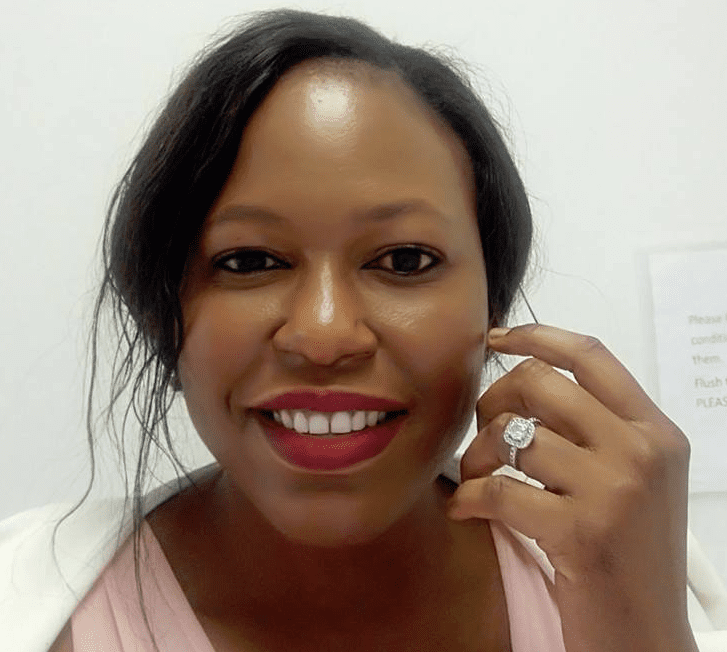
[bctt tweet=”We don’t think just being natural is enough. Products should deliver results – Mphela Yelane” via=”no”] “To me, it shifted from the mindset of being a policy maker to becoming an individual championing the comparative local development concept. Africa trades more in agriculture, the agriculture sector should be the highest paying employer in the continent I thought.” These were the thoughts of a 31-year-old Mphele Yelane while in Italy on a student exchange program that exposed her to the real context of local development. Born and raised in the African Eden (Limpopo province), “in our backyards you find plants for food and healing remedies. It’s natural for me to take advantage of the wealth in our soil. In Tzaneen my hometown, we produce oranges, lemon, nuts, avocadoes, litchis etc. I know in June I get avocado and orange for consumption and also apply as a face mask”. The cosmetic products started as a creative thing to do for Mphele, her sisters and friends started coming for more after trying her products. While doing her Masters it clicked to her that this should be a business, Mphele realised she could empower her neighbours by buying from them and producing organic products for profit. Hence Ezamazwe Skin Solution brand was conceived. Ezamazwe means “of the world” or “from the earth”. Tell me more about Ezamazwe Skin Solution. Ezamazwe Skin Solution is 100% organic skincare products. We source our ingredients from all over the African continent to ensure we only work with top quality products. A good example is our unrefined shea butter which comes from Ghana. Our passion is to source out pure products from local traders in order to produce products that are truly pure, environmentally friendly and have never been tested on animals for quality control. The fact that we do all our own research and development and produce all our products from start to finish in one location, ensures high quality every step of the way. Ezamazwe Skin Solution is proud to guarantee that we use the recommended dosages for all our actives. We don’t think just being natural is enough. Products should deliver results. Our product is completely organic, and healthy for the environment as it is for human skin. Starting its life as nuts, raw materials are carefully crafted into many useful products, including oil and butter. The beauty of shea butter is that it is infinitely recycled from plant to skin butter. Recycling nuts products therefore, contribute to the preservation of our planet. As a sustainable skin solution, it takes nothing away from the environment and leaves nothing behind. How did you get your idea or concept for the business? I am born in an entrepreneurial family, my parents own a tuck-shop, taxi business and are involved in community projects. I know more about business management than being an employee. When people started making regular orders I knew this must be formalized. What was your mission at the outset? My dream is to have Ezamazwe Skin Solution become one of the very few local organic skincare manufacturers in the South African cosmetic industry. When did you “charter” the business? The business started officially in 2007, now to celebrate 10 years I decided to register a formal business in 2017. The brand has grown and the market is ready to receive the Ezamazwe Skin Solution brand. [bctt tweet=”Mphele Yelane ran Ezamazwe Skin Solution for 10 years before formally registering it as a business” via=”no”] How do you advertise your business? I advertise my business mainly through word of mouth. I also utilise social media and am now ready to sponsor TV programs and beauty pageants. How long do you stick with an idea before giving up? I have a solid support system from my parents, my sisters (Olgah, Sharon and Lerato) and my husband. I run my ideas with them, if they buy it, I start doing research and officialise it. If they say it’s not viable I leave it there. Also, I never give up, I just postpone and re-focus my energy. Giving up is never an option if I am sold onto something. Describe/outline your typical day? I am still employed full-time and work on Ezamazwe Skin Solution as part-time. My husband is a hands-on father, a typical day starts with “morning ritual”; drop my son at school, off to work, during lunch I work on Ezamazwe Skin Solution. After work, driving back home I start planning my day as MD of Ezamazwe Concepts. Once I get home, I do house chores, then from 9pm to 2am I work on Ezamazwe Skin Solution; processing orders, delivery arrangement, and manufacturing process. How has being an entrepreneur affected your family life? It doesn’t, my husband is a businessman too and my mentor, we don’t know anything besides working smart as parents. What motivates you? I am motivated by the desire to be financially fit so that even if I don’t work for a year, my lifestyle don’t change. How do you generate new ideas? Ideas are not generated, they just come when one is content. When you are at peace with self, your mind starts working right and ideas start popping up. [bctt tweet=”Ideas are not generated, they just come when one is content – Mphele Yelane” username=”SheLeadsAfrica”] How far are you willing to go to succeed? I won’t rest until Ezamazwe Skin Solution becomes a household brand and number one skincare solution in Africa. What is your favourite aspect of being an entrepreneur? Changing people’s lives through employment is something that brings me joy as an entrepreneur. I also enjoy exploring new markets and take pride in producing Proundly SA brand. To what do you most attribute your success? What would say are the five key elements for starting and running a successful business? Wow! If I had to limit it to five elements, they would be, Know yourself in Christ Commit and focus on your plan Believe in yourself and stick to the plan Do
Valentine Mabaso: I am a warrior, I got scars to prove it

[bctt tweet=”I aspire to help those with skin conditions and scars to see that their strength” username=”Rockscarsqueen”] …Shape, size and scars. These are some of the common insecurities that massacre every shred of confidence one can possess. Women feel the pressure to weigh certain kilos, have a particular melanin shade and definitely a clear skin tone. But trying to be something else is honestly a waste of who you truly are. You need to accept the areas that make you feel fragile and capitalise on your strengths. A beautiful soul called Valentine Mabaso embraced her own scars and now gives hope to all those who feel trapped by their skin conditions. This #MotherlandMogul is a Marketing Specialist by day and a Rock Scars warrior every day. Her aspirations are to help others see that their strength is written on their skin and to help them see the beauty in their scars. She lives with a chronic skin condition called Atopic Dermatitis and has been living with it for 10 years to date. The 23-year-old was born and bred in the rural villages of Limpopo and currently resides in Johannesburg, South Africa. Valentine has two awesome younger brothers and they were raised by a single mother who is Valentine’s number 1 cheerleader in her mission to change the world. What Rock Scars priorities are you focusing on right now? At this stage we are prioritizing on the following: To provide a platform and an environment that serves to empower and inspire people living with any form of skin condition or a scar of any kind. To restore self confidence in people of any age and gender, living with scars by providing support, networking, mentoring, encouragement and health care activities across the nation (particularly concerning skin disorders, cancer and scars of any form). Rock Scars also educates people about skin conditions. Do you do this personally or do you have professionals who conduct these sessions? We have unfortunately not worked with any dermatologist to date but we hope to have a professional assisting with that in future. I personally made thorough research about different forms of skin conditions, the common ones and those that are rare. I look at how they can be prevented and/or treated and how to live with them and then I share that with others. We call this Skin Condition Awareness and it is Rock Scars’ way of educating people about skin conditions. However, I always make it clear that our participants should in all cases seek medical attention with professional Skin Doctors. Also, as people come forward to share their stories about their skin conditions, I further research about the skin conditions and then create awareness about them, especially with our online communities. How do you tackle discrimination against the people you assist? I believe that no one is born with a discriminatory mind, such things are learned from people and events around us. If we can teach people especially those not directly affected by us and our scars, then we can change their minds thus tackle being discriminated. We teach people to learn to appreciate diversity and respect people who are different in any way. People may be disabled, transgender, dark-skin or have a different hair color, scars, stretch marks or a skin condition but the truth is, no one chose to be that way so why should we discriminate them. Rock Scars promotes dialogue on social media and during the events where we engage those living with skin conditions and scars and those who don’t. In as much as I wish to protect the people I assist against discrimination and negative remarks, I unfortunately, cannot be there for them all the time. This is why during the sessions or our 1 on 1 conversations I remind them that they are warriors. That way they will be strengthened and will stand their ground under any circumstance. I call them warriors not because I want them to feel better but because it is true. If you can survive a burning house, car accidents, cancer, and its many surgeries, live with a chronic condition for so long, why should words from someone you don’t know break you? I remind them that it matters NOT what others say. They should know that they fought bigger battles and won them and now they have the scars as medals to prove it. How do you respond when Rock Scars is held up as an object of ridicule? The best tool I believe in is education. Most people make such remarks because of misinformation, so the best way to correct such behavior is through educating them about our conditions. For example, I was told a lot of times that I must be HIV positive because of my skin and its scars. This example goes to prove that people can just look at you and make their own assumptions and conclusions. Through Rock Scars, I show people it is not ok to make your own conclusion just by looking at me. Often when we get ridiculed for what we do, I always remind people that no one ever voluntarily goes out there to get a scar for the fun of it. We try to make those ridiculing us understand that even if they are not infected they are probably affected in some way. They have someone in their lives who has a scar or is living with a skin condition. We are patient with those who do not agree with what Rock Scars does and let them know that in any case the same happens to them they are welcome to our family of warriors. To grow, do you advertise Rock Scars or do you rely on word of mouth? Why? I use every opportunity I get to promote the good work Rock Scars does. We interact with most people online and therefore use that as an advertising tool. It allows us to reach a large number of people across the globe instantly and it is cost
